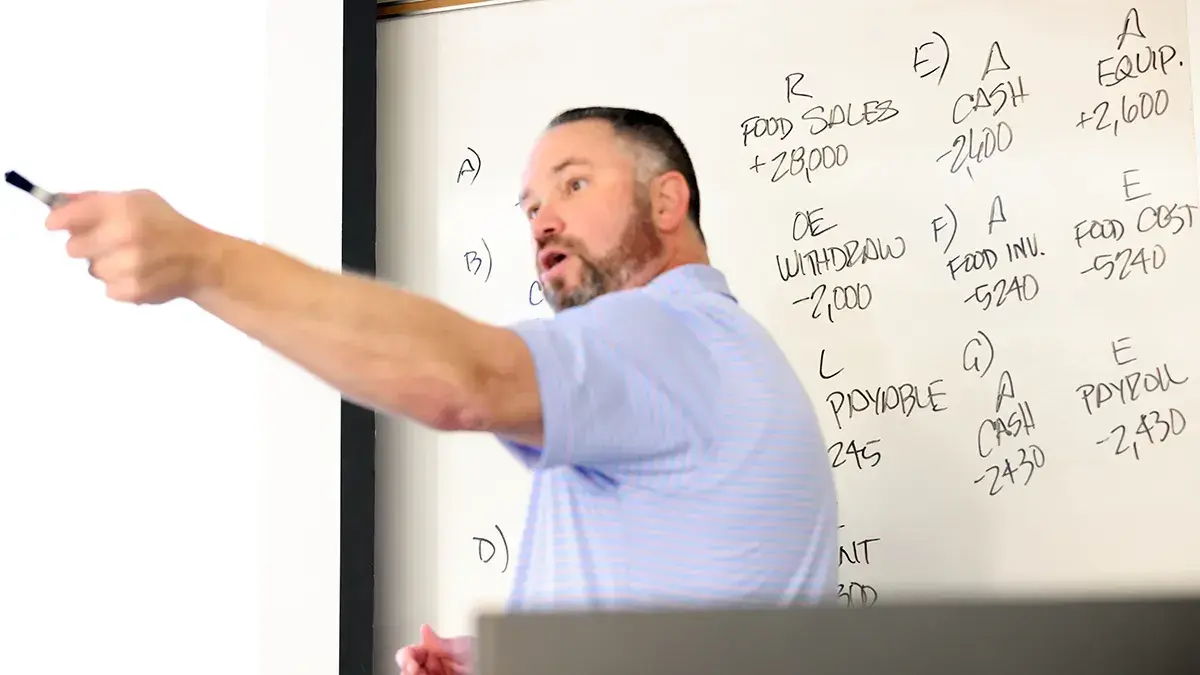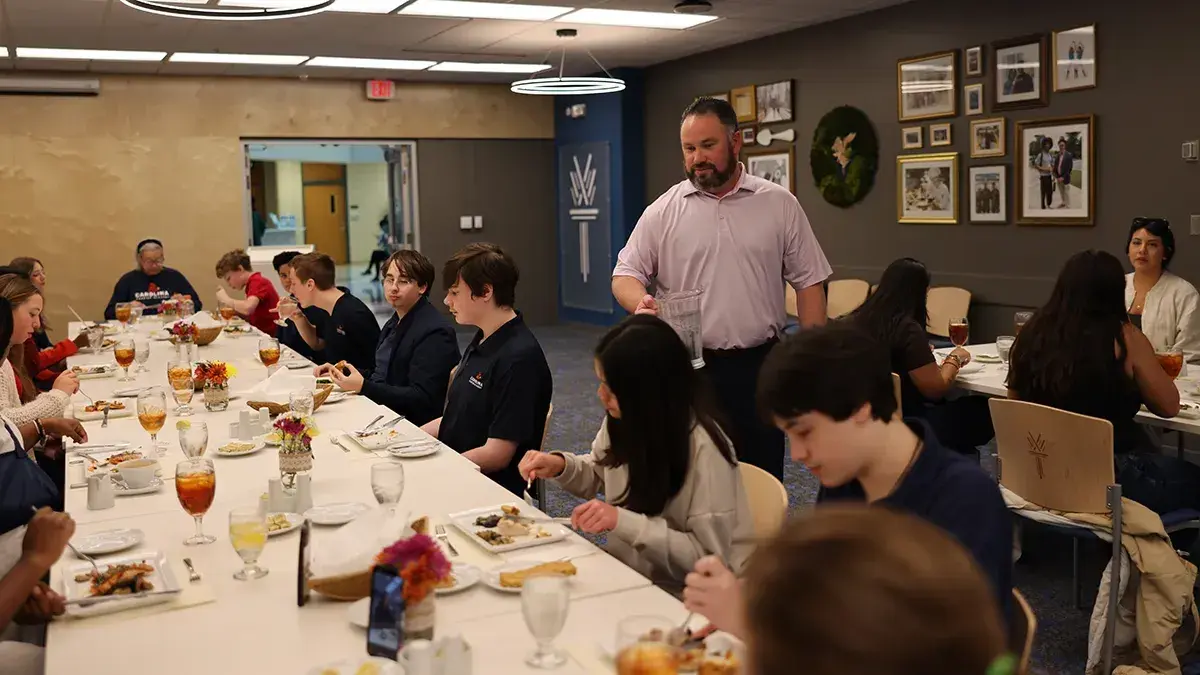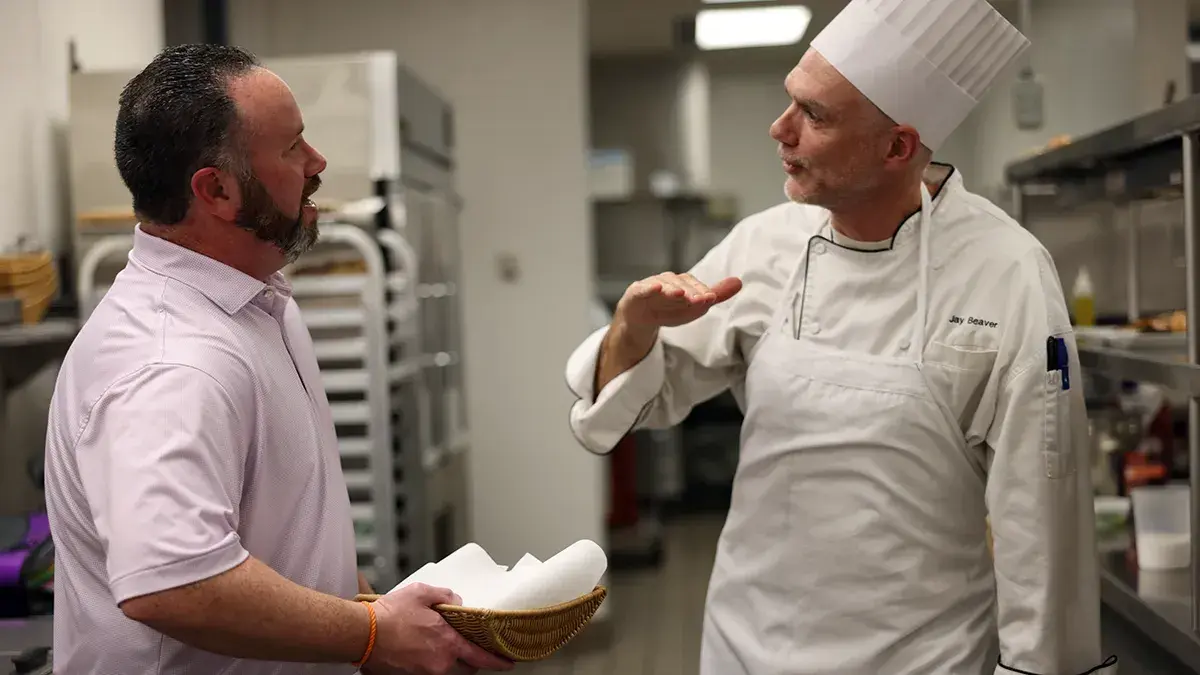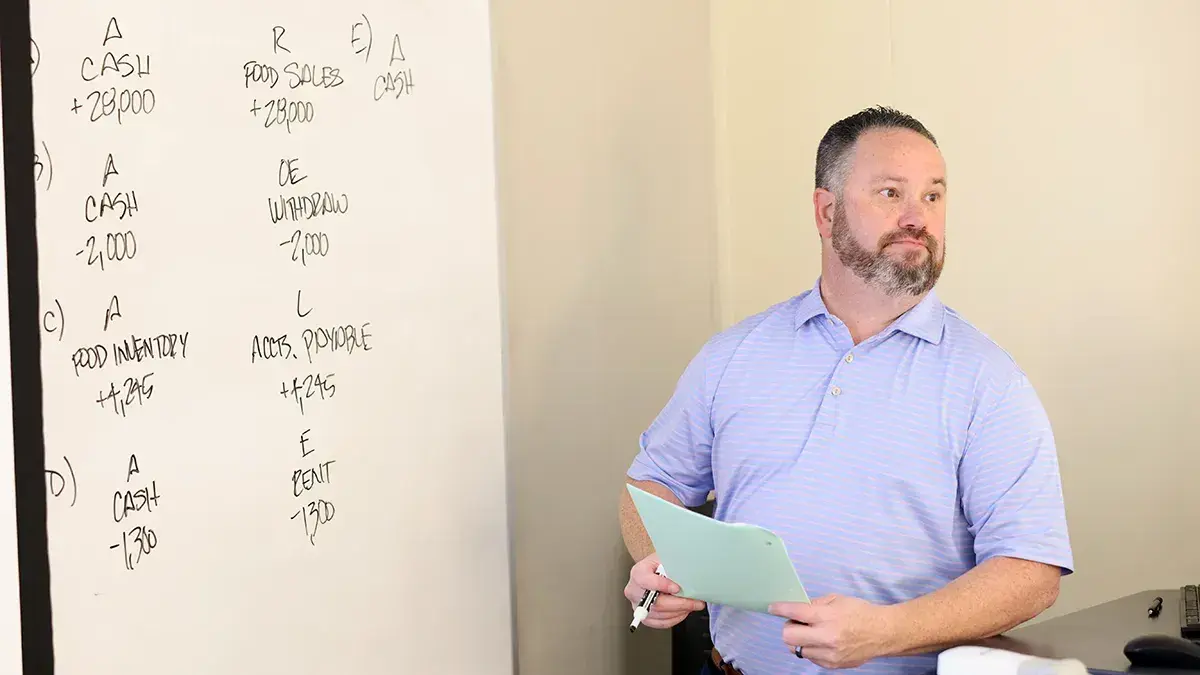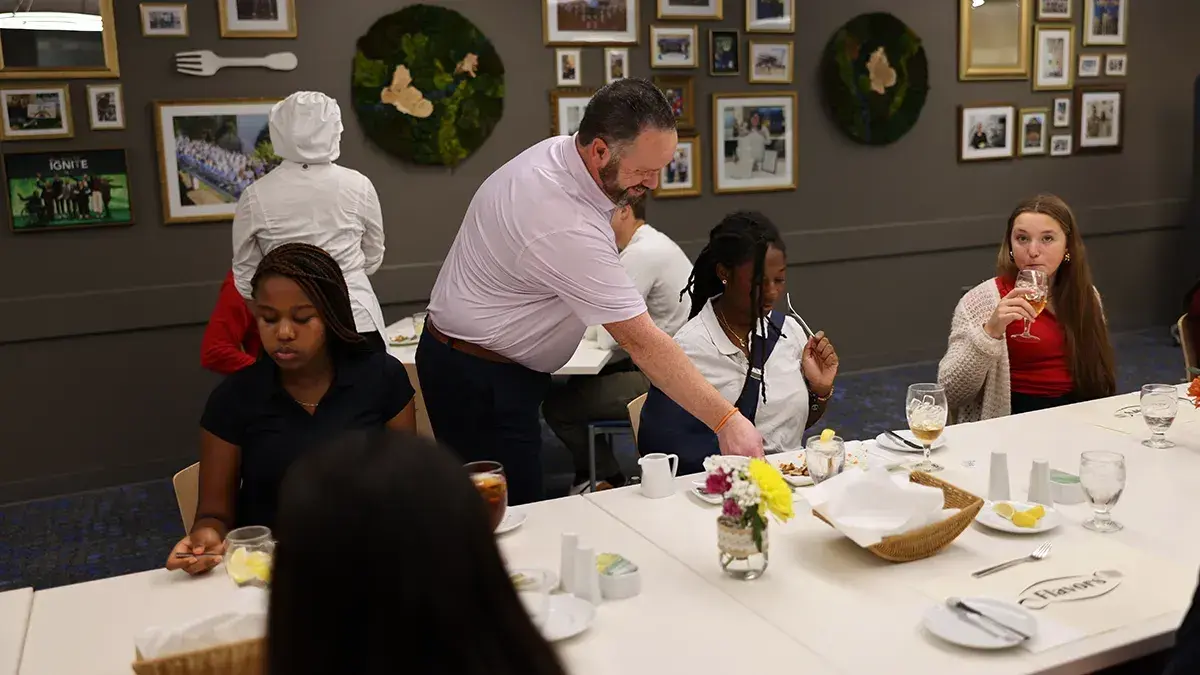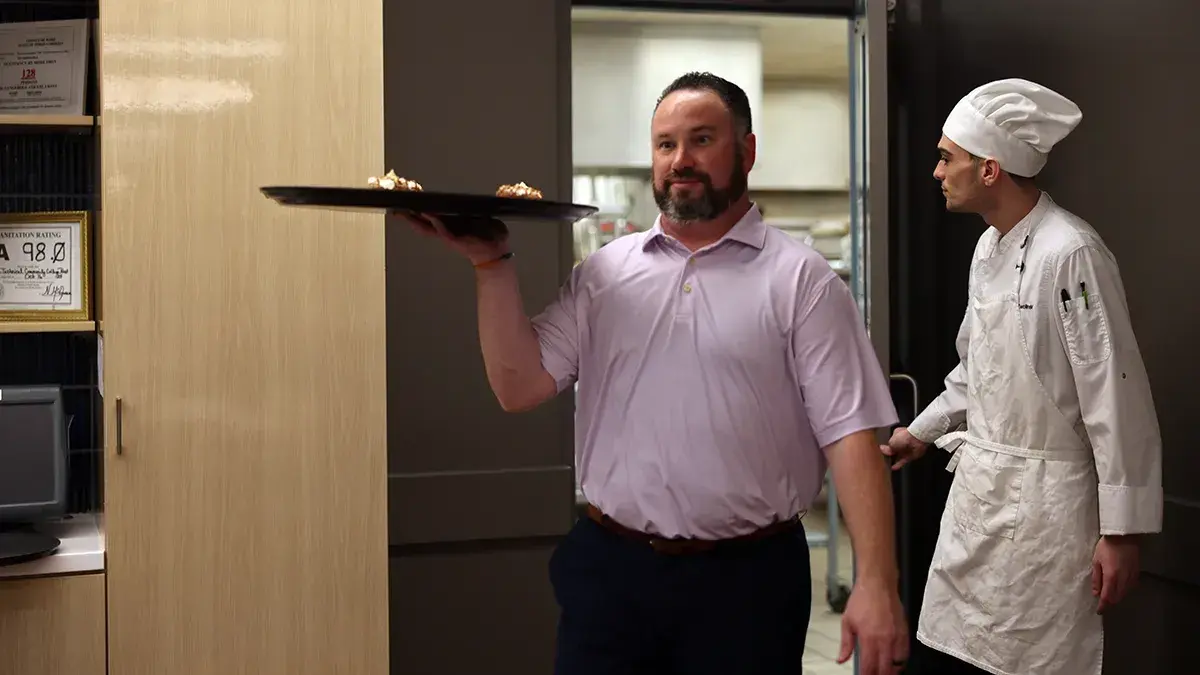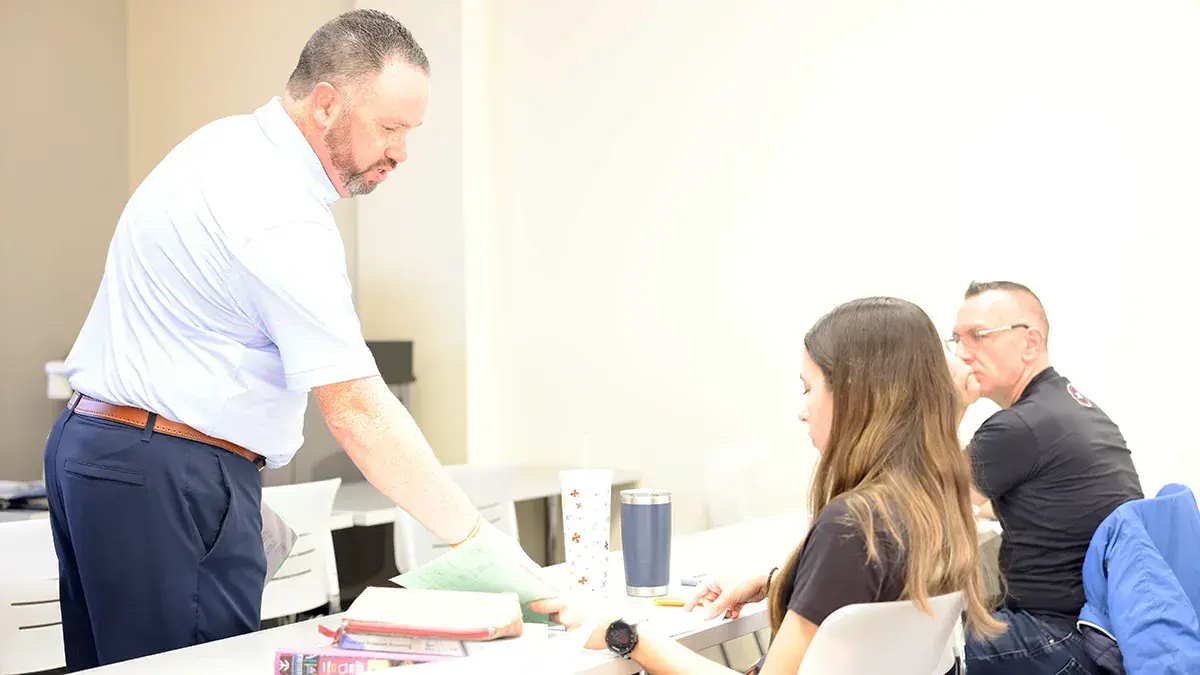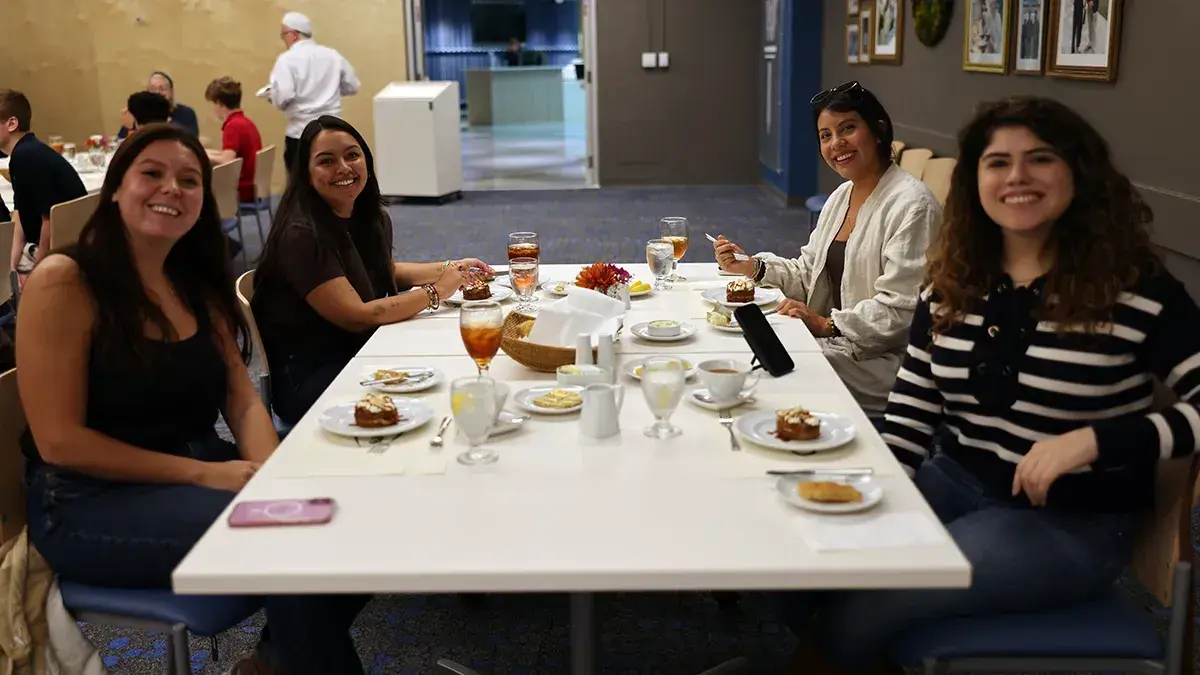Faculty Spotlight
Hospitality Management
Teaching Management Skills With 'Dad Energy'
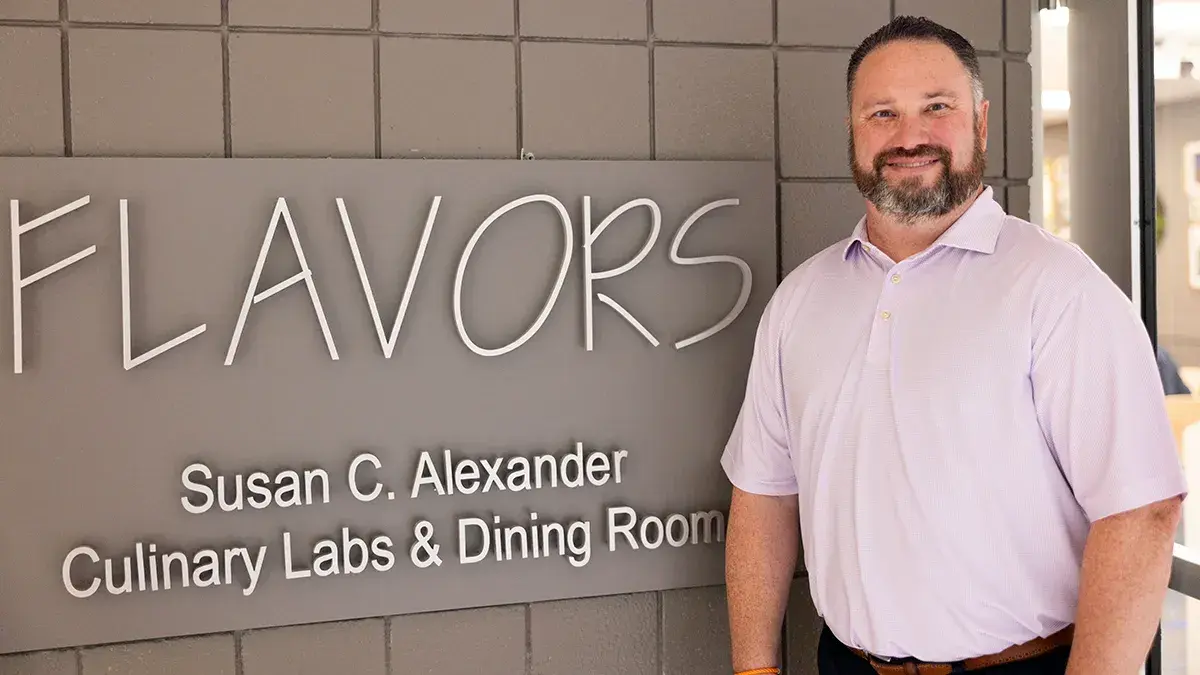
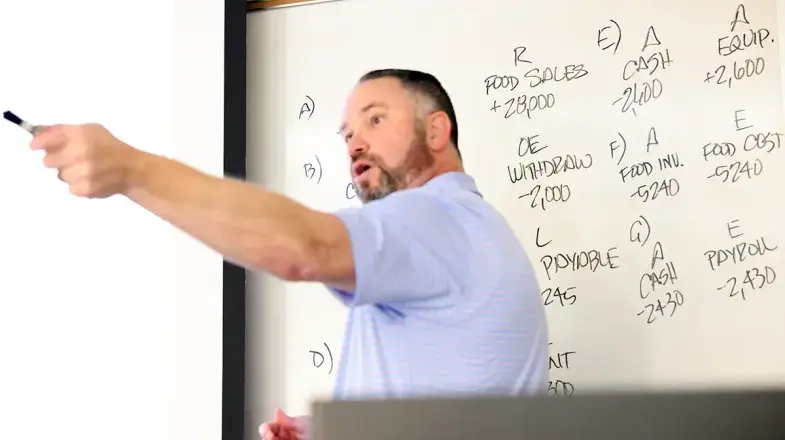
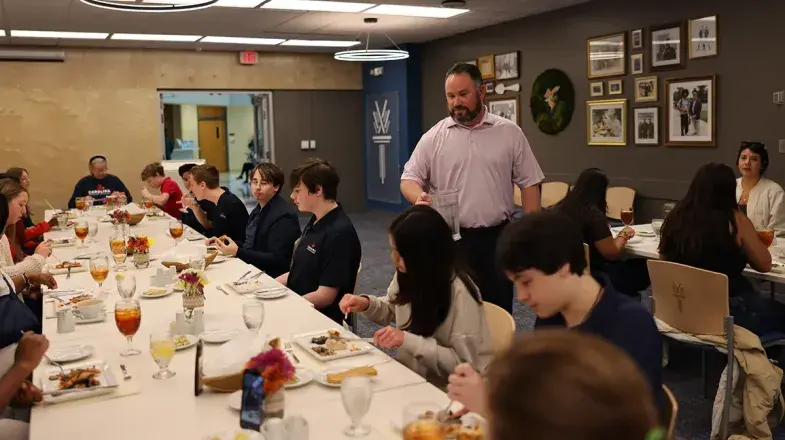
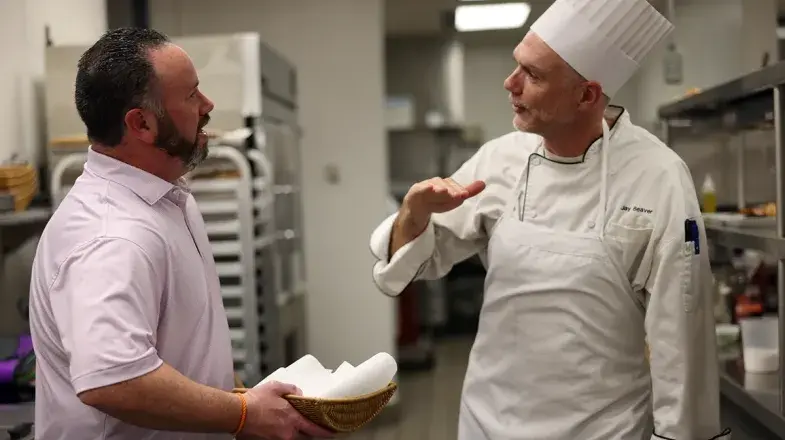
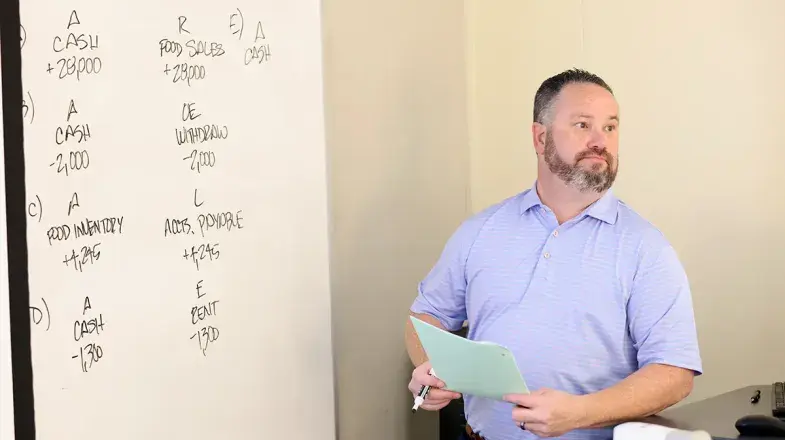
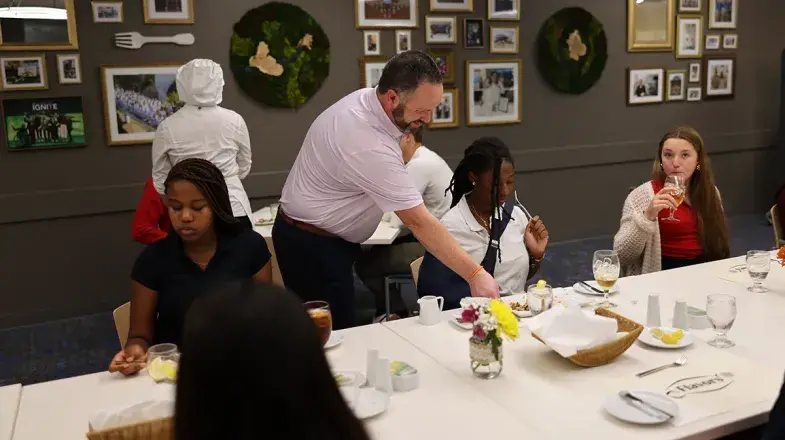
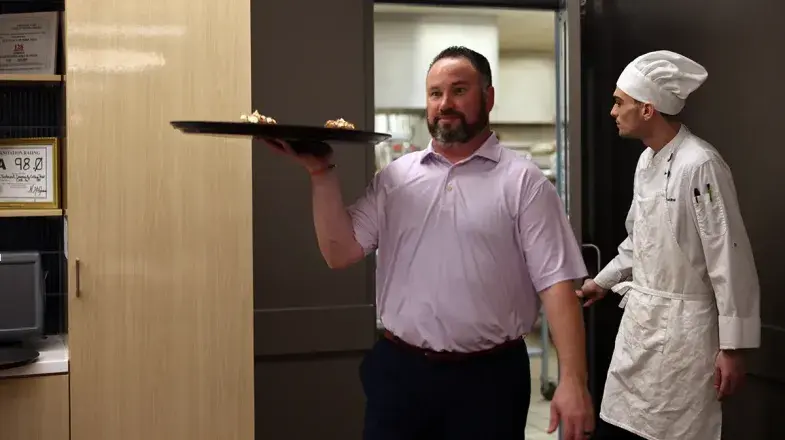
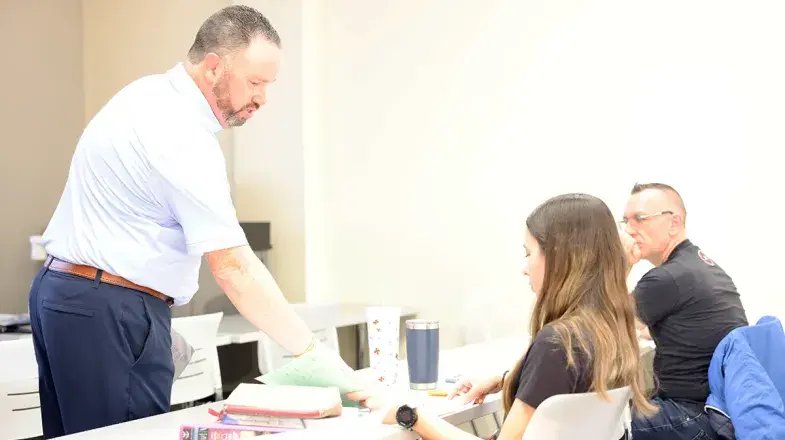
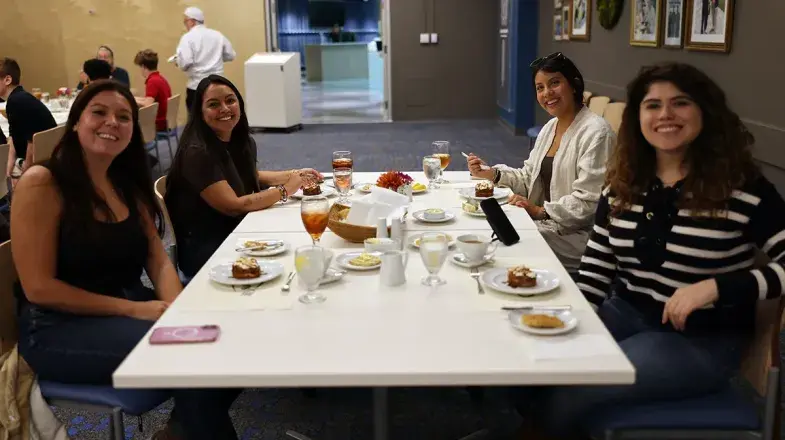
Hospitality Management Assistant Professor Dr. Barry Tracey gets down and dirty really fast in his Culinary Sanitation and Safety class.
"Let's not dance around it, we're talking about poop," he tells students during a lesson about how pathogens like E.coli and salmonella can get into food – and how to avoid it.
In addition to the scatological discussion, Tracey covers preventing contaminants such as fingernails and used Band-Aids from getting into food.
"A lot of students don't realize the importance of what they're doing" when working at a restaurant, he said later. "I pretty much have to make it disgusting – vomiting, diarrhea, you name it – for it to hit home."
Tracey has seen a lot of that and more in his years in the restaurant industry. After working at fast-food eateries in high school, he figured hospitality management would be a solid business-oriented career.
"People are always going to go out to eat; they're always going to travel," he said to explain his reasoning. He then added with a laugh, "I guess the pandemic proved me wrong there."
One of his first managerial jobs was erecting a kitchen in Bahrain, where his Air Force unit had deployed after 9/11, to feed troops during the Iraq War.
Back stateside after leaving the military, Tracey worked as a manager for different restaurant chains in different states for several years. But he tired of the long shifts and late nights, so when the assistant general manager of University Dining position at North Carolina State University opened up, he grabbed it.
"This was regular hours, managing 100 people," he said, noting that he ran a food court on campus. "We served 5,000 to 7,000 people a day."
Some of the staff he managed during his decade at N.C. State were Work-Based Learning students from Wake Tech. That connection helped pave the way for his next career move.
"The entire campus shut down during COVID, and all the students went online," he said. "With no food court to run, I was pretty much out of a job."
But through his contacts at Wake Tech, Tracey was able to pivot in 2021 to teaching the skills he had picked up during his years of food service management.
"I really enjoy the people side," he said. "My teaching philosophy is not scholarly. It's just, everybody brings value, and my job is to find it and bring it out."
Students Katie Ryan and Ethalie Garcia-Rosa say Tracey relates to students on their terms, which makes classes more relaxed and open.
"He's got that kind of 'Dad energy,'" Garcia-Rosa said. "He knows everyone learns in a different way, and the way he explains things makes it easy."
"He's very personable, very understanding," Ryan added. "He's someone you can look up to."
Tracey says he tries to teach "beyond the classroom," promoting traits like etiquette and punctuality in all interactions with students, including whenever he manages the service at Flavors, Wake Tech's student-operated restaurant.
In 2024, he was part of the Business-Higher Education Forum's inaugural class of Faculty Innovation Fellows, where he and others worked with national experts on bringing innovative ideas to campuses.
"The biggest thing I learned is don't be afraid of the absurd," he said. "The wildest idea might be the seed that, several iterations later, becomes something really useful."
Tracey earned his doctorate in human and organizational psychology in 2025 and says he may eventually pursue an academic administration role. But for now, he enjoys the relationships he can build with students as a teacher.
"The best part is when I see them after graduation," he said. "They've achieved something they worked hard for, and I've been a little part of that journey."
